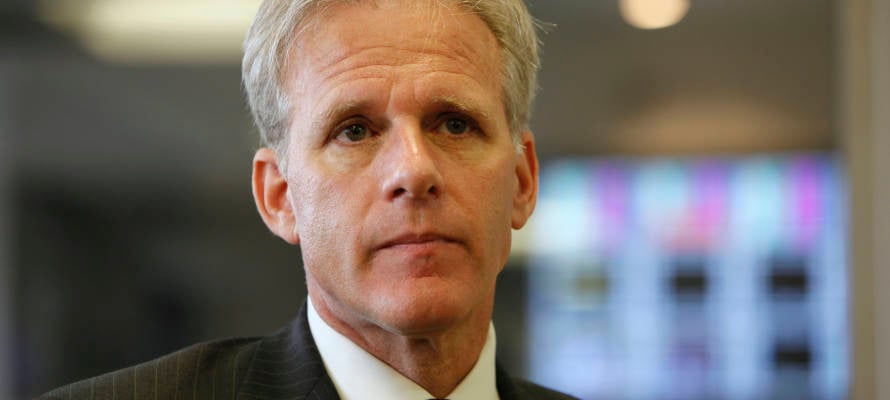Obama is making new claims about the meaning of his 2009 Cairo speech. “Maybe because his whole vision of and for the Middle East has completely collapsed,” Oren surmises.
U.S. President Barack Obama’s recent claim about the real meaning of his 2009 Cairo speech “is patently unsubstantiated by the text,” former Israeli ambassador to the US Michael Oren told The Algemeiner on Thursday.
Oren, today a member of Knesset with the centrist Kulanu party, was responding to statements Obama made in an interview with Jeffrey Goldberg in the just-released April edition of The Atlantic.
“My argument was this,” Obama told Goldberg, “Let’s all stop pretending that the cause of the Middle East’s problems is Israel… We want to work to help achieve statehood and dignity for the Palestinians, but I was hoping that my speech could trigger a discussion, could create space for Muslims to address the real problems they are confronting — problems of governance, and the fact that some currents of Islam have not gone through a reformation that would help people adapt their religious doctrines to modernity.”
Oren said that the speech in question, which Obama delivered at Cairo University during his first official visit to the region, “nowhere mentions that the Israeli-Palestinian issue is not the core of the Middle East’s other conflicts.” On the contrary, Oren emphasized, “It actually implied the opposite.”
In fact, explained Oren – author of the international best-seller, Ally: My Journey Across the American-Israeli Divide – “The Cairo speech is the foundational document of the Obama administration’s Middle East policy, and it is based on linkage: that everything in the region is linked to the Israeli-Palestinian conflict, and therefore if you solve it, you will solve the region’s problems.”
Oren, who served as Israel’s key envoy to Washington from 2009-2013, said that he “used to hear that linkage mentioned every single day. Even former National Security Adviser James Jones said that if God came down and asked to solve one problem, it would be the Arab-Israeli conflict. It was doctrinal.”

US President Barack Obama in 2009 delivers his famous Cairo speech, reaching out to the Palestinians and the Muslim world. (AP)
Furthermore, Oren added, “The Cairo speech, which was twice as long as Obama’s first inaugural address, gave Israel legitimacy based on the Holocaust – the same as the Arab narrative about why the Jews were given a state – and didn’t even mention the Sunni-Shi’ite divide or Iranian-Arab enmity, for example.”
Oren also had strong words about another passage in Goldberg’s article:
…as the Arab Spring gave up its early promise, and brutality and dysfunction overwhelmed the Middle East, the president grew disillusioned. Some of his deepest disappointments concern Middle Eastern leaders themselves. Benjamin Netanyahu is in his own category: Obama has long believed that Netanyahu could bring about a two-state solution that would protect Israel’s status as a Jewish-majority democracy, but is too fearful and politically paralyzed to do so. Obama has also not had much patience for Netanyahu and other Middle Eastern leaders who question his understanding of the region.
In one of Netanyahu’s meetings with the president, the Israeli prime minister launched into something of a lecture about the dangers of the brutal region in which he lives, and Obama felt that Netanyahu was behaving in a condescending fashion, and was also avoiding the subject at hand: peace negotiations. Finally, the president interrupted the prime minister: “Bibi, you have to understand something,” he said. “I’m the African American son of a single mother, and I live here, in this house. I live in the White House. I managed to get elected president of the United States. You think I don’t understand what you’re talking about, but I do.”
“Really?” asked Oren. “Netanyahu is one of Obama’s ‘deepest disappointments’ as a Middle East leader? More disappointing than [Syrian President Bassar] Assad? Than [former Iranian president Mahmoud] Ahmadinejad? Than [ISIS chief Abu Bakr] al-Baghdadi?”
Why, then — if Obama’s doctrine all along has been to link the Israeli-Palestinian conflict to the rest of the region’s woes (and to hold Netanyahu largely responsible) — did he choose the present moment to say that this is not what he had intended at the beginning of his presidency?
“A more important question here might be to ask why Goldberg didn’t challenge him on it,” Oren said, adding that the interview was “illuminating,” in that it shined light “on the relationship of the press with the president.”
But urged to give an answer about the timing and meaning of Obama’s claims, Oren concluded, “Maybe because his whole vision of and for the Middle East has completely collapsed.”
By Ruthie Blum/The Algemeiner
Do You Love Israel? Make a Donation - Show Your Support!
Donate to vital charities that help protect Israeli citizens and inspire millions around the world to support Israel too!
Now more than ever, Israel needs your help to fight and win the war -- including on the battlefield of public opinion.
Antisemitism, anti-Israel bias and boycotts are out of control. Israel's enemies are inciting terror and violence against innocent Israelis and Jews around the world. Help us fight back!























